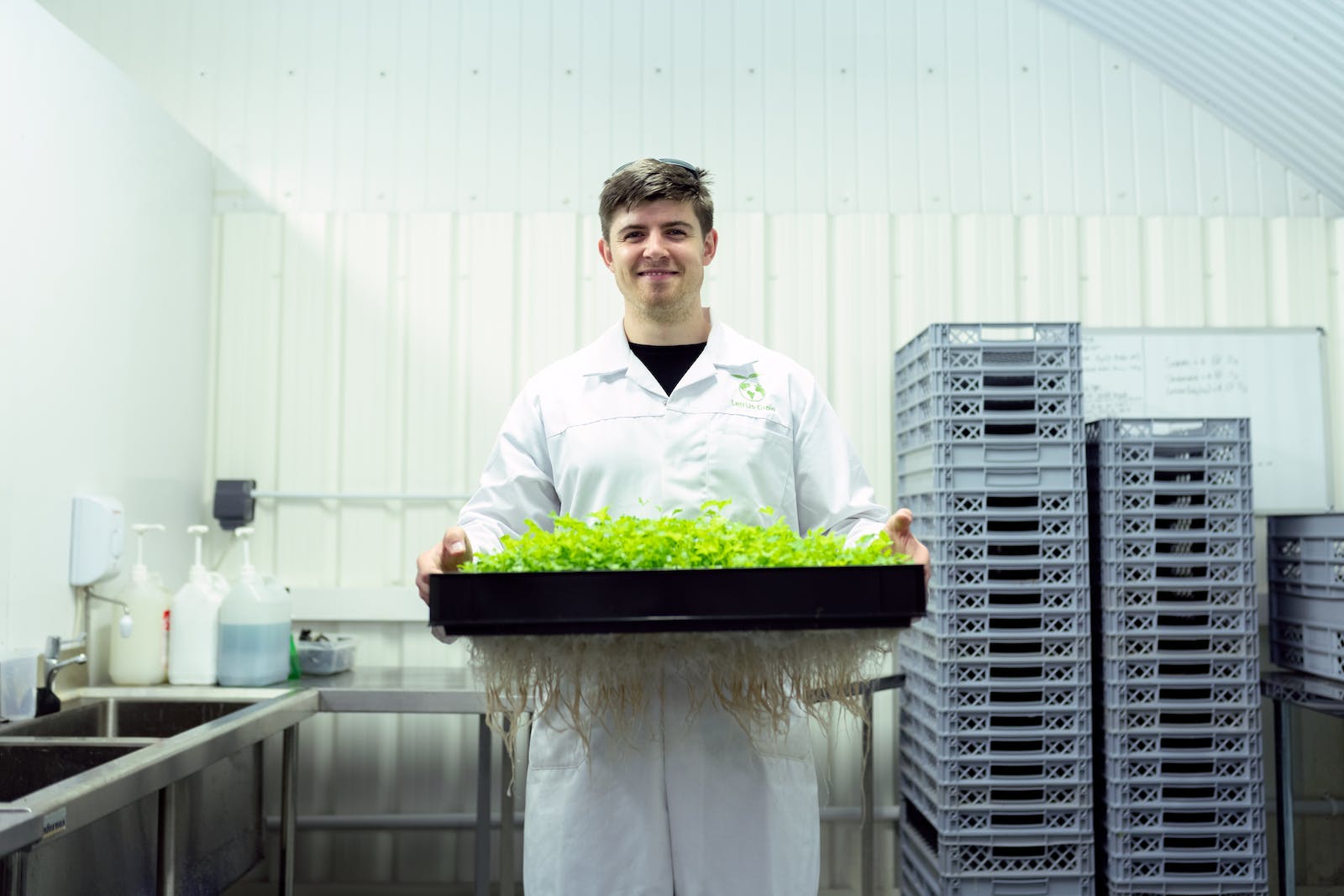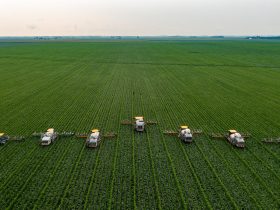Ethics play a vital role in promoting sustainable farming practices. When we talk about sustainability in agriculture, we refer to practices that ensure the long-term viability of food production while minimizing harm to the environment, protecting natural resources, and promoting social equity. By incorporating ethical considerations into farming practices, we can move towards a more sustainable and responsible agricultural system.
Farming is not just about producing food; it is an interconnected relationship between the environment, society, and the well-being of both humans and animals. Ethical considerations in agriculture ensure that the production of food aligns with values such as environmental stewardship, social justice, and animal welfare. By embracing ethical practices, farmers and consumers can collectively contribute to a more sustainable and responsible food system.
Defining Ethics in Sustainable Farming
Ethics in sustainable farming encompass a range of principles and values, including:
Environmental Impact: Sustainable farming practices prioritize environmental conservation and aim to minimize negative impacts on ecosystems. This involves reducing greenhouse gas emissions, conserving water resources, preserving biodiversity, and minimizing pollution and soil degradation.
Biodiversity Conservation: Sustainable farming acknowledges the importance of biodiversity and aims to protect and enhance it. By implementing strategies that promote habitat preservation, crop rotation, and the use of native plants, farmers can support biodiversity and maintain vital ecosystem services.
Soil Health and Conservation: Ethical farming practices focus on building and maintaining healthy soils. This involves implementing soil conservation techniques such as cover cropping, crop rotation, composting, and minimizing tillage. Healthy soils support nutrient cycling, water retention, and overall ecosystem resilience.
Water Conservation: Sustainable farming emphasizes responsible water management, recognizing the importance of this finite resource. Farmers can adopt techniques such as precision irrigation, water-efficient infrastructure, and rainwater harvesting to minimize water usage and reduce environmental impacts.
Responsible Use of Chemicals: Ethical farming practices prioritize the responsible use of chemicals, such as pesticides and fertilizers. This involves implementing integrated pest management (IPM) strategies, using organic and natural alternatives, and ensuring proper storage, handling, and disposal of chemicals to minimize negative impacts on human health and the environment.
Social Equity and Fair Labor Practices: Ethical farming considers the well-being and fair treatment of farmworkers. This includes providing fair wages, safe working conditions, and access to essential resources such as healthcare and education. Promoting social equity within the agricultural sector ensures that farmers and workers are treated with dignity and respect.
Animal Welfare: Sustainable farming practices take into account the welfare of animals involved in food production. Ethical farmers prioritize humane treatment, provide adequate living conditions, and avoid practices such as overcrowding and unnecessary use of antibiotics. Respecting animal welfare is essential for ethical and responsible farming.
By integrating these ethical considerations into farming practices, we can create a more sustainable and responsible food system.
Environmental Impact
Ethical farming practices significantly reduce the environmental impact of agriculture. By prioritizing environmental conservation, farmers can minimize their carbon footprint, protect natural resources, and mitigate climate change. Sustainable farming techniques such as agroforestry, regenerative agriculture, and organic farming contribute to carbon sequestration, reducing greenhouse gas emissions and enhancing soil health.

Moreover, by implementing practices that promote soil and water conservation, farmers can prevent soil erosion, preserve water quality, and safeguard ecosystems. These efforts help maintain critical habitats, protect biodiversity, and ensure the long-term sustainability of food production.
Biodiversity Conservation
Biodiversity is essential for the resilience and productivity of ecosystems. Ethical farming practices acknowledge the importance of biodiversity conservation and seek to promote it. Farmers can create diverse habitats, plant native species, and implement sustainable land management practices that support pollinators, beneficial insects, and wildlife.
By fostering biodiversity on farms, farmers can enhance natural pest control, reduce the reliance on chemical inputs, and improve overall ecosystem health. Biodiversity conservation also contributes to the stability and resilience of agricultural systems, making them less vulnerable to pests, diseases, and climate change.
Soil Health and Conservation
Soil is the foundation of agriculture, and its health is crucial for sustainable food production. Ethical farming practices prioritize soil health and conservation. By adopting techniques such as cover cropping, crop rotation, and organic fertilization, farmers can enhance soil fertility, structure, and nutrient cycling.
Healthy soils retain water more effectively, reduce the need for synthetic fertilizers, and support increased agricultural productivity. Ethical farmers also avoid excessive tillage, which can lead to soil erosion and degradation. By prioritizing soil health and conservation, farmers can ensure the long-term sustainability of their land and contribute to the overall health of the environment.
Water Conservation
Water is a precious resource, and sustainable farming practices recognize the importance of responsible water management. Ethical farmers implement strategies to conserve water, such as using drip irrigation systems, adopting water-efficient technologies, and practicing rainwater harvesting.
By minimizing water usage and reducing runoff, farmers can mitigate water scarcity and protect water quality. Responsible water management also benefits ecosystems by preserving aquatic habitats and maintaining the health of rivers, lakes, and wetlands.
Responsible Use of Chemicals
Ethical farming practices prioritize the responsible use of chemicals, including pesticides and fertilizers. Farmers can adopt integrated pest management (IPM) strategies, which involve monitoring pest populations, using biological controls, and employing targeted pesticide applications only when necessary.
Additionally, ethical farmers promote the use of organic and natural alternatives to synthetic chemicals. This reduces the risk of chemical pollution, protects beneficial insects and organisms, and safeguards the health of farmworkers and consumers.
Proper storage, handling, and disposal of chemicals are also crucial aspects of responsible farming. By following best practices in chemical management, farmers can minimize the negative impacts on human health and the environment.
Social Equity and Fair Labor Practices
Ethical farming practices go beyond environmental considerations and also address social equity and fair labor practices. Farmers should strive to provide fair wages, safe working conditions, and access to essential resources for their workers. By treating farmworkers with dignity and respect, farmers contribute to the overall well-being of their communities.
Promoting social equity within the agricultural sector ensures that all individuals involved in food production have access to basic rights and resources. This includes providing healthcare, education, and opportunities for professional development. By fostering a fair and inclusive agricultural system, ethical farmers can create a positive impact on society.
Animal Welfare
Ethical farming practices recognize the importance of animal welfare in food production. Farmers should prioritize humane treatment, provide animals with adequate living conditions, and avoid practices that cause unnecessary harm or stress.
By implementing animal welfare standards, such as free-range systems, access to outdoor spaces, and avoiding unnecessary use of antibiotics, farmers can ensure the well-being of the animals. Respecting animal welfare not only aligns with ethical principles but also contributes to the quality and safety of the food produced.
Conclusion
Ethics play a crucial role in promoting sustainable farming practices. By integrating environmental considerations, biodiversity conservation, soil health, water conservation, responsible use of chemicals, social equity, and animal welfare into farming practices, we can move towards a more sustainable and responsible food system.
Embracing ethical farming practices not only benefits the environment but also supports the well-being of farmers, workers, animals, and communities. By making conscious choices as consumers and supporting ethical farmers, we can collectively contribute to a more sustainable and resilient future.

































